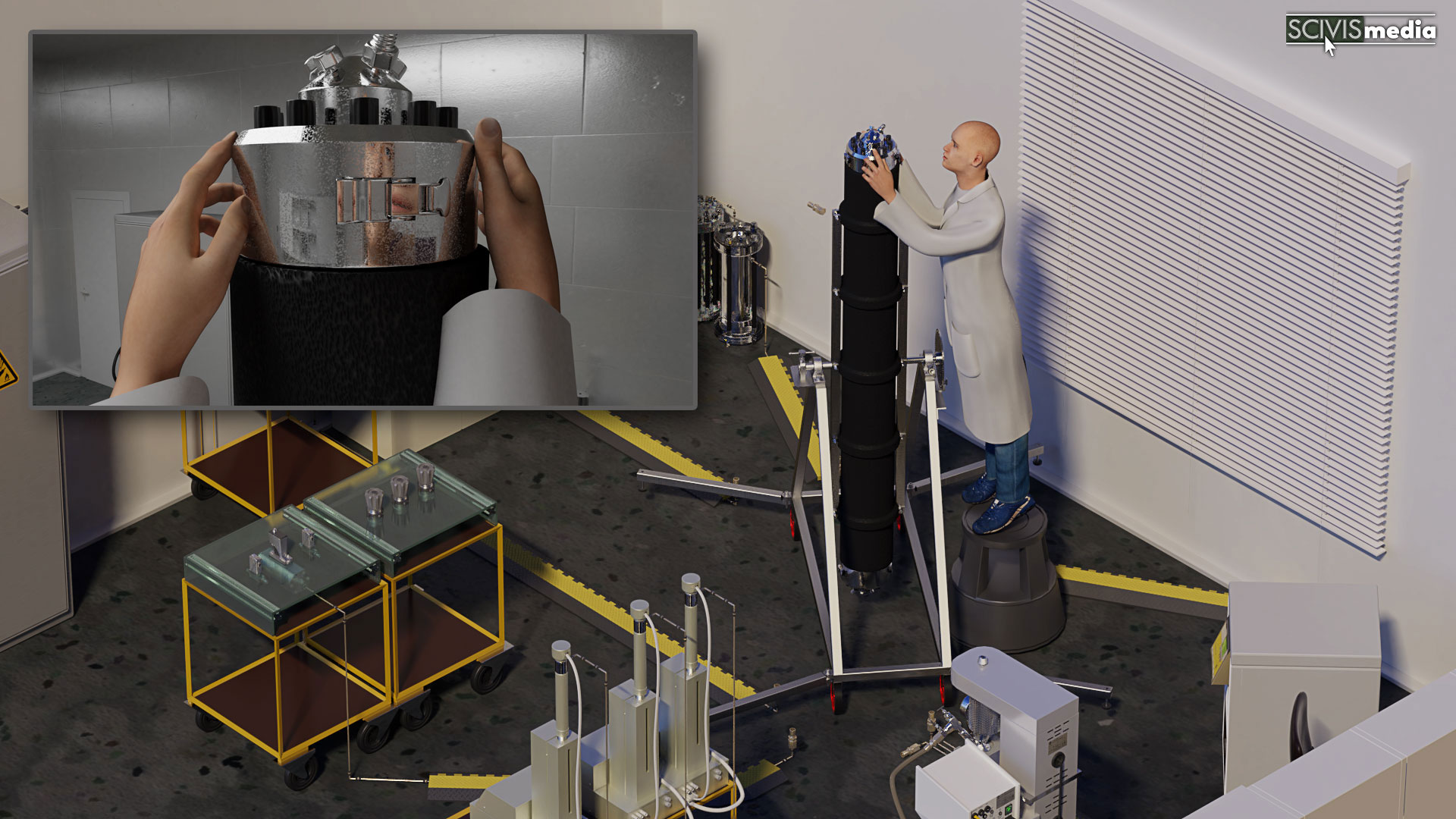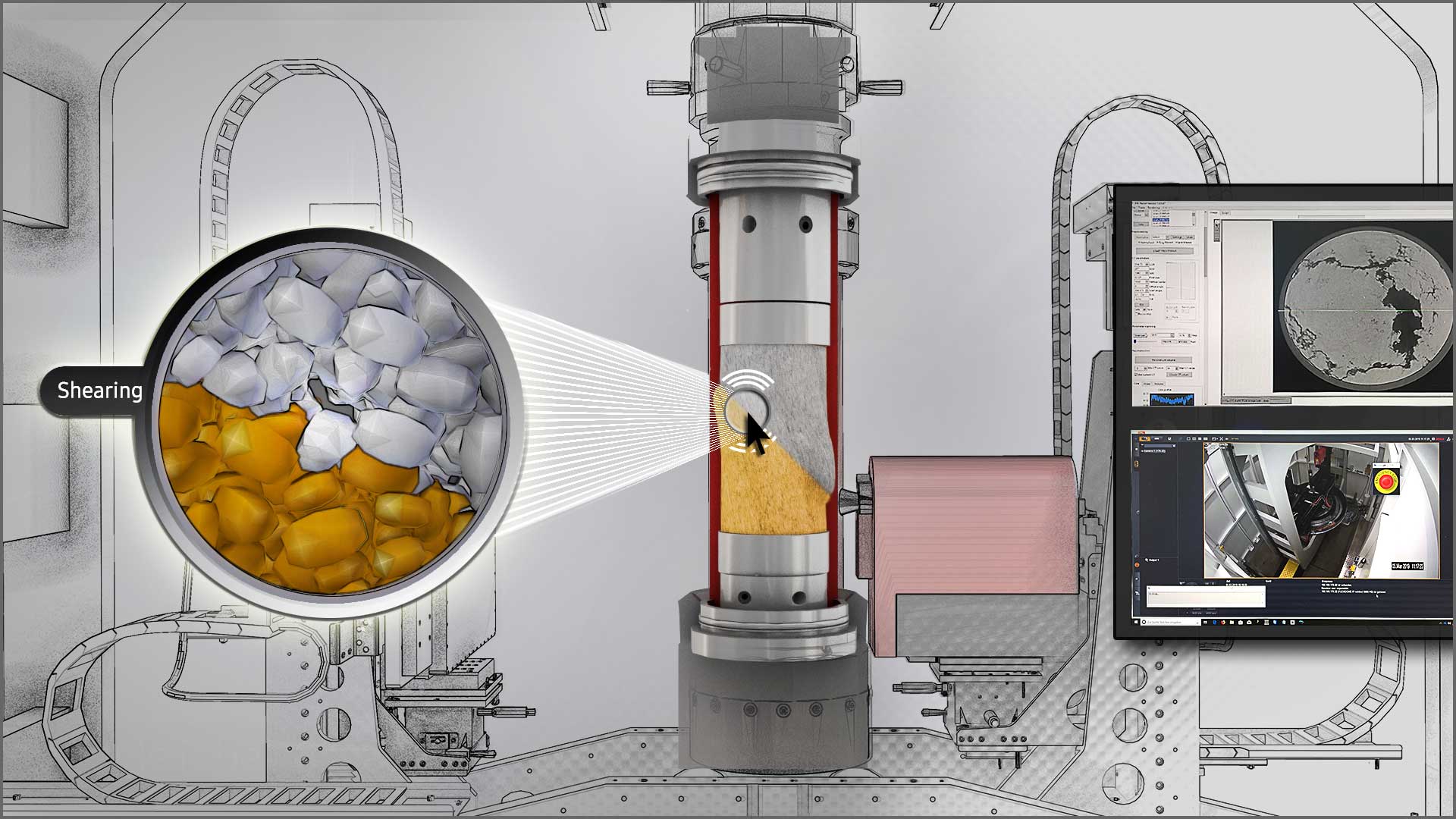Technical systems and laboratories.
Based on available graphical material (e.g. picture or video footage, technical drawings, illustrations or CAD data), we produce 3D scenes to show and explain function principles. We highlight key details and important components, and arrange animated flow sheets. We provide high-resolution sectional views and develop transitions between 2D horizontal projections and 3D animations, as a schematic representation or fully rendered.



